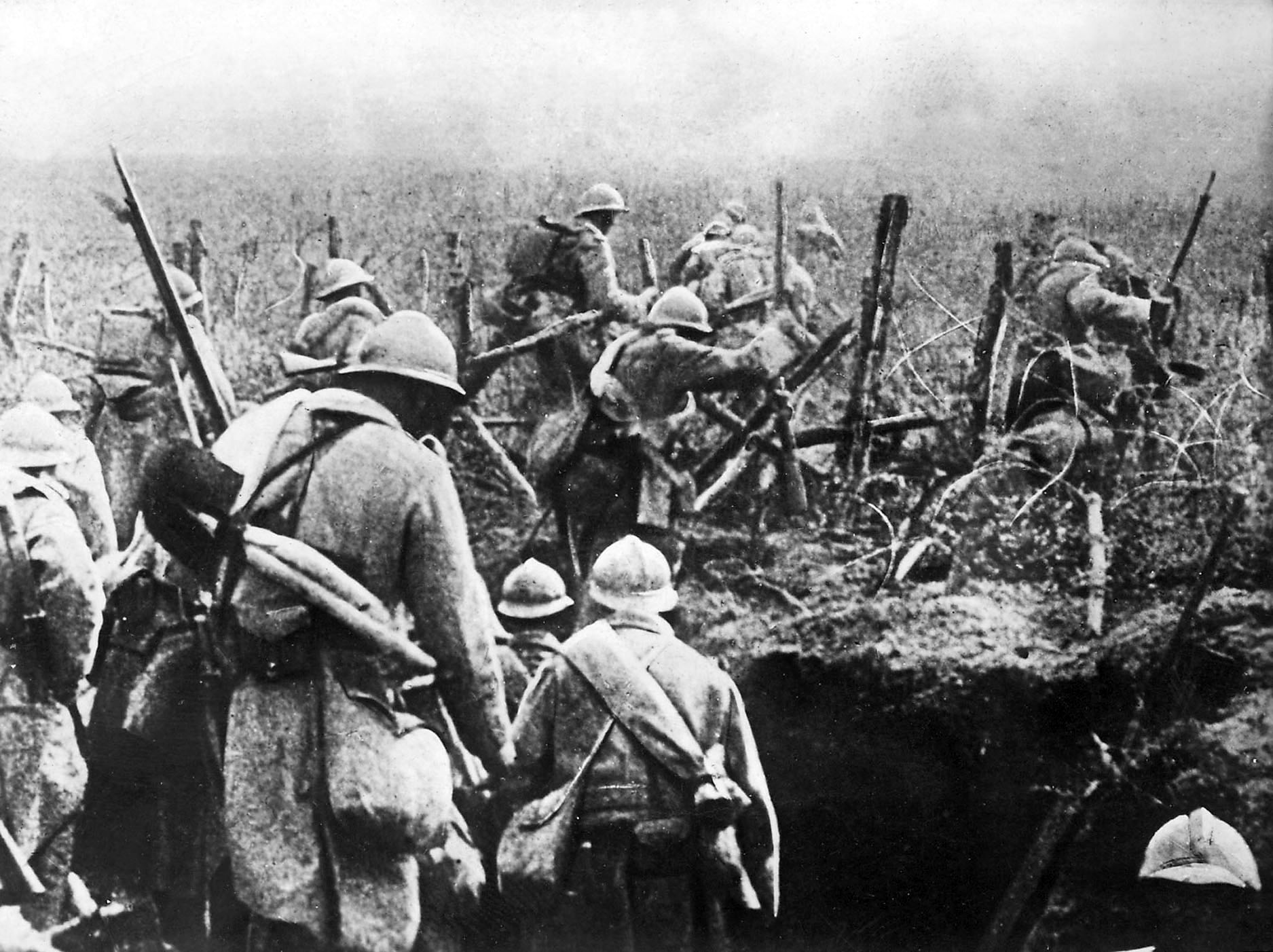
World War I
World War I[j] or the First World War (28 July 1914 – 11 November 1918) was a global conflict between two coalitions: the Allies and the Central Powers. Fighting took place throughout Europe, the Middle East, Africa, the Pacific, and parts of Asia. One of the deadliest wars in history, it resulted in an estimated 9 million soldiers dead and 23 million wounded, plus up to 8 million civilian deaths from numerous causes including genocide. The movement of large numbers of troops and civilians during the war was a major factor in spreading the 1918 Spanish flu pandemic.
Several terms redirect here. For other uses, see WWI (disambiguation), The First World War (disambiguation), World War One (disambiguation), and Great War (disambiguation).
Increasing diplomatic tensions between the European great powers reached a breaking point on 28 June 1914, when a Bosnian Serb named Gavrilo Princip assassinated Archduke Franz Ferdinand, heir to the Austro-Hungarian throne. Austria-Hungary held Serbia responsible, and declared war on 28 July. Russia came to Serbia's defence, and by 4 August, Germany, France, and Britain were drawn into the war, with the Ottoman Empire joining in November of the same year. Germany's strategy in 1914 was to first defeat France, then transfer forces to the Russian front. However, this failed, and by the end of 1914, the Western Front consisted of a continuous line of trenches stretching from the English Channel to Switzerland. The Eastern Front was more dynamic, but neither side could gain a decisive advantage, despite costly offensives. As the war expanded to more fronts, Bulgaria, Italy, Romania, Greece and others joined in from 1915 onward.
In early 1917, the United States entered the war on the Allies' side, and later the same year, the Bolsheviks seized power in the Russian October Revolution, making peace with the Central Powers in early 1918. Germany launched an offensive in the west in March 1918, and despite initial successes, it left the German Army exhausted and demoralised. A successful Allied counter-offensive later that year caused a collapse of the German frontline. By the end of 1918, Bulgaria, the Ottoman Empire and Austria-Hungary agreed to armistices with the Allies, leaving Germany isolated. Facing revolution at home and with his army on the verge of mutiny, Kaiser Wilhelm II abdicated on 9 November.
The fighting ended with the Armistice of 11 November 1918, while the subsequent Paris Peace Conference imposed various settlements on the defeated powers, notably the Treaty of Versailles. The dissolution of the Russian, German, Austro-Hungarian, and Ottoman Empires resulted in the creation of new independent states, including Poland, Finland, Czechoslovakia, and Yugoslavia. The inability to manage post-war instability contributed to the outbreak of World War II in September 1939.
Names
The first recorded use of the term First World War was in September 1914 by German biologist and philosopher Ernst Haeckel who stated, "There is no doubt that the course and character of the feared 'European War' ... will become the first world war in the full sense of the word."[1] It was later used as a title for his 1920 memoirs by Lt-Col. Charles à Court Repington.
Before World War II, the events of 1914–1918 were generally known as the Great War or simply the World War.[2] In August 1914, the magazine The Independent wrote "This is the Great War. It names itself".[3] In October 1914, the Canadian magazine Maclean's similarly wrote, "Some wars name themselves. This is the Great War."[4] Contemporary Europeans also referred to it as "the war to end war" and it was also described as "the war to end all wars" due to their perception of its unparalleled scale, devastation, and loss of life.[5]